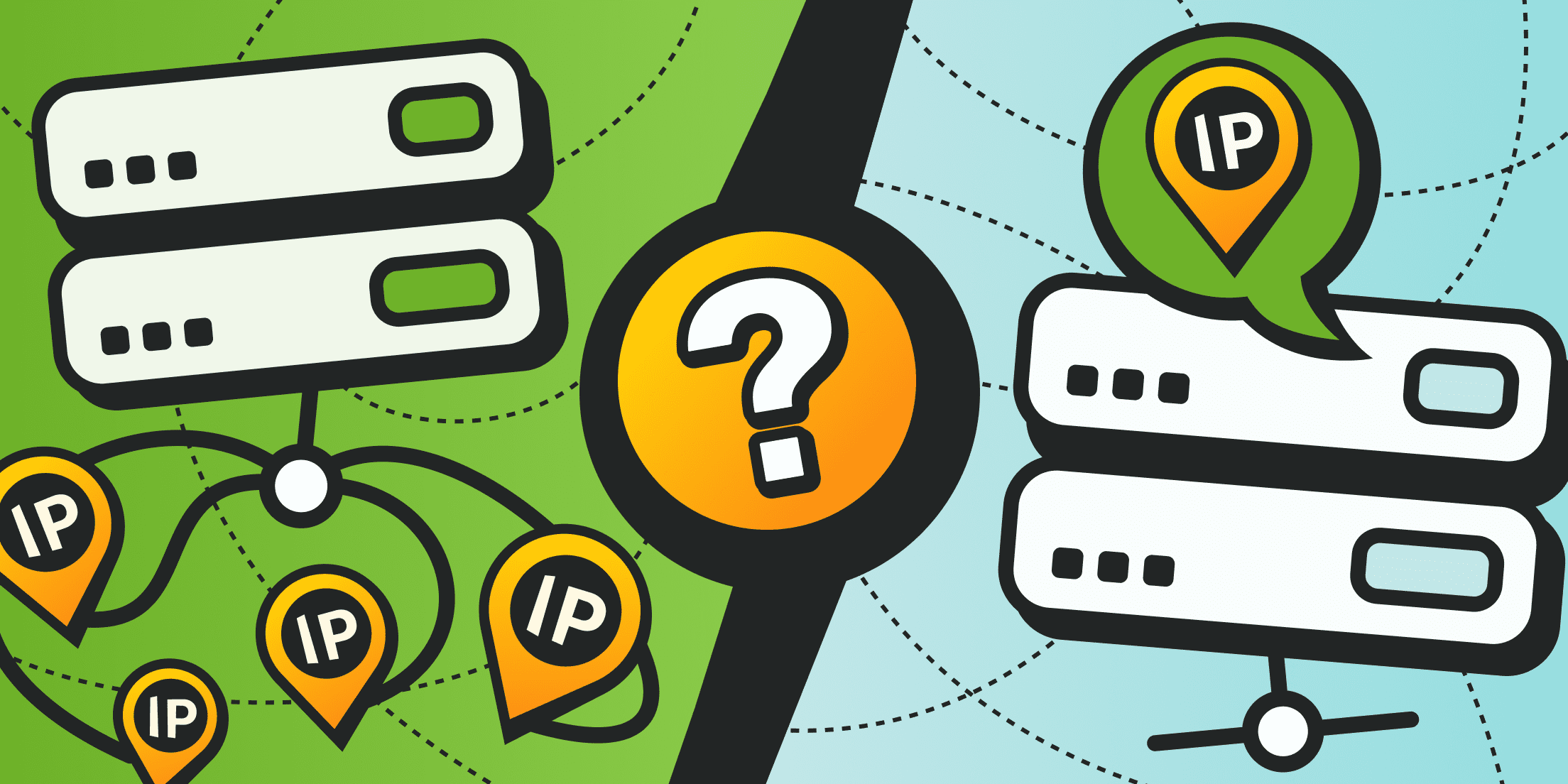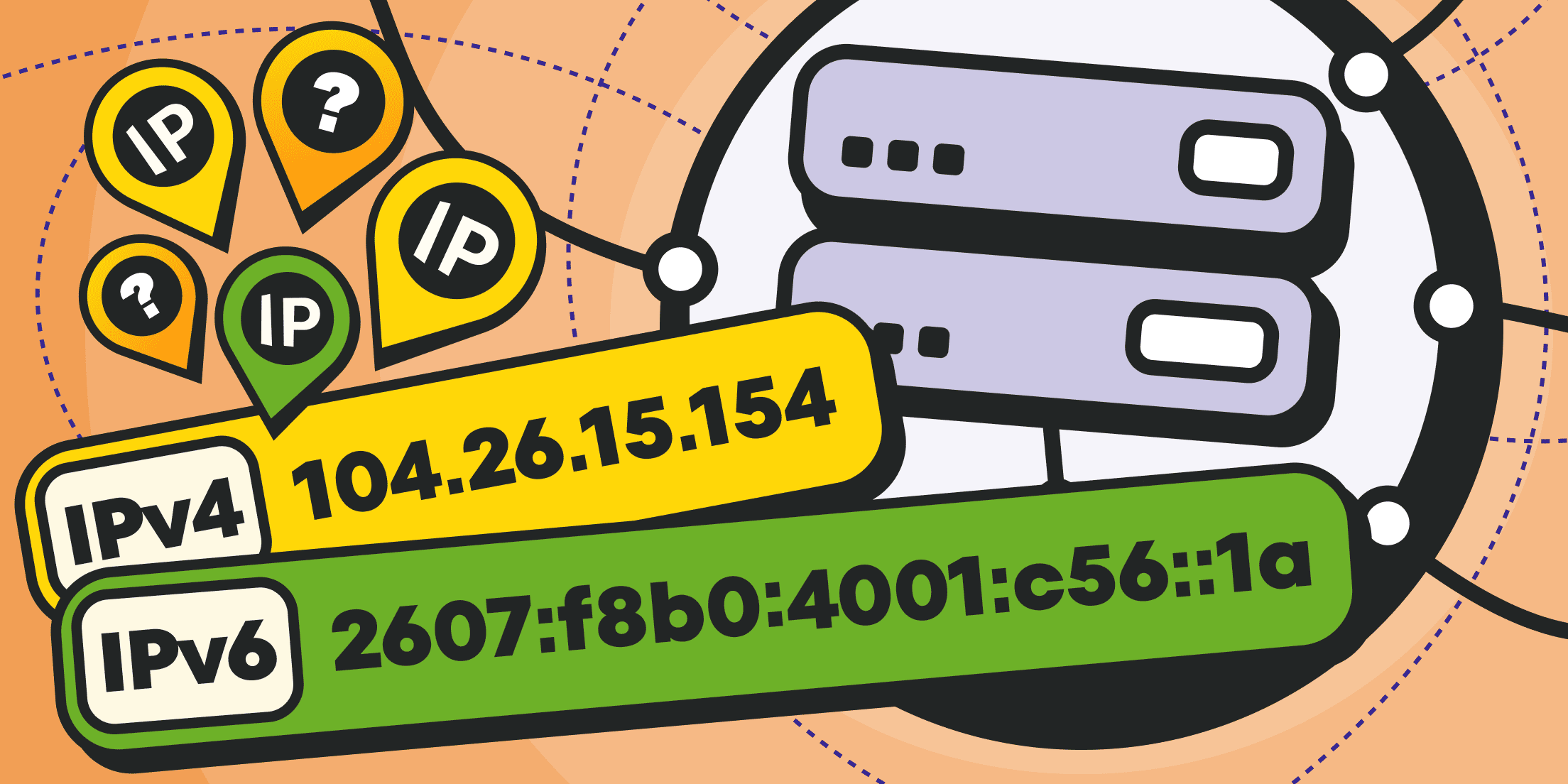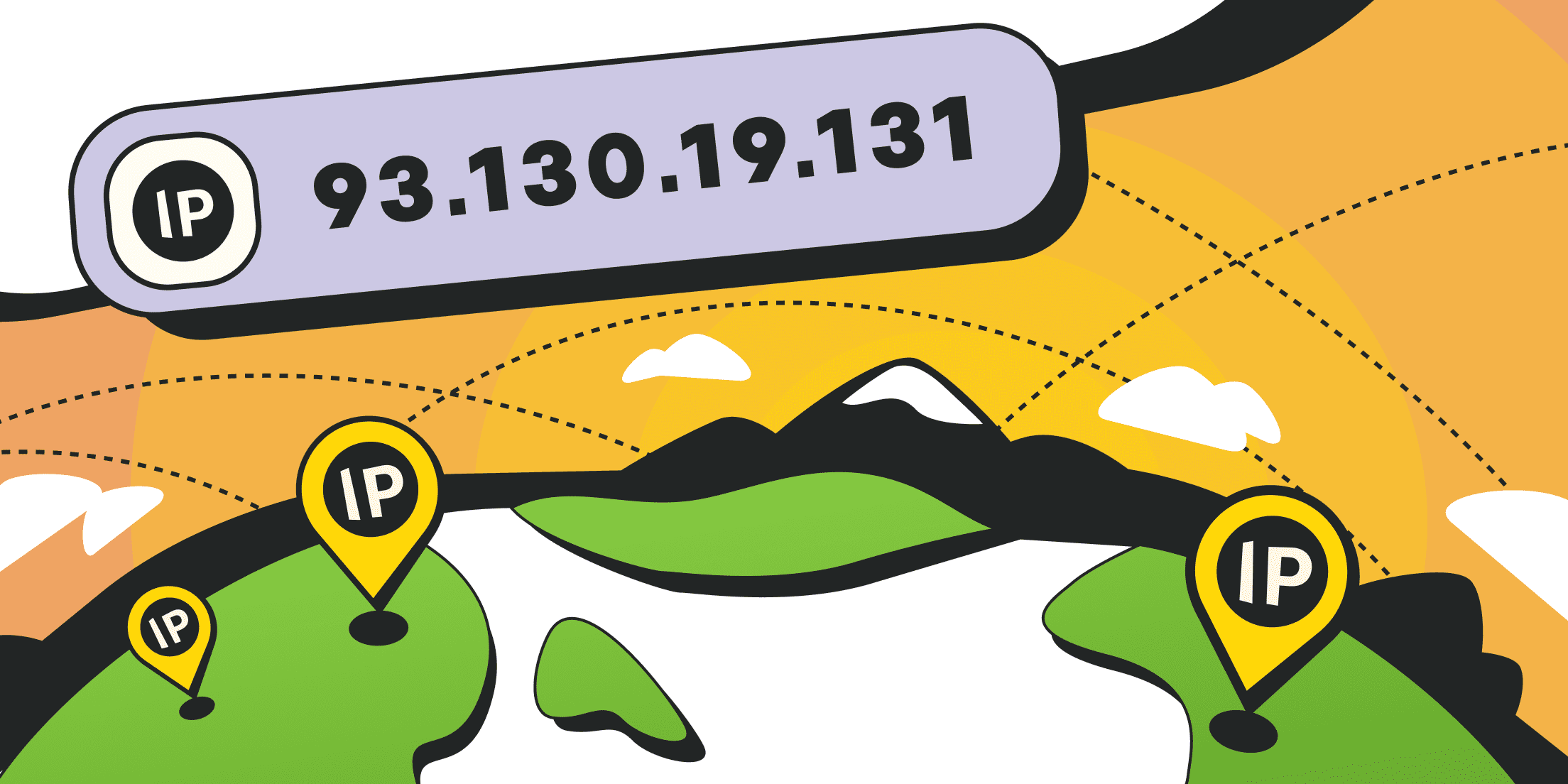While the Internet is considered a decentralized network, it actually has large nodes, control of which allows managing specific segments. For instance, special traffic filtering systems and other control or blocking mechanisms may operate in important areas or specific regions (countries).
Proxy servers make it possible to bypass any restrictions. They can have static or dynamic IP addresses. Below, we'll explain the differences between them, their characteristics and the way this can affect their performance.
What Is a Static Proxy?

Static means constant or immobile.
Sticky proxies involve the allocation (receiving) of unchanging IP addresses that will be available to clients for the entire duration of their rental.
This approach has its pros and cons.
Pros of Static Proxies
- Many providers of static proxy servers make it possible to rent IP addresses individually. Thus, you can use as many spots as you need - no more and no less.
- Since most static IP proxies operate on the basis of dedicated servers or hosting addresses, they provide a consistently wide bandwidth (high connection speeds) and have no traffic limits.
- The ability to access the network from the same addresses without forced rotation is interesting as well. This can be useful for specific tasks like downloading large volumes of information (torrents, video hosting, streaming services etc.).
- Large sets (databases) of static proxies let you reduce the cost of a single proxy (making it minor). If needed, you can configure your own rotation algorithms to achieve an effect similar to dynamic IP addresses.
- You can select IPs in all the necessary locations with sufficient geographic database coverage.
Cons of Static Proxies
- You can't just terminate the rental of a static IP address. If the proxy static is banned because of your actions or the provider's fault (it doesn't work with the required website or web service), you probably won't be able to get it back.
- Each new static IP requires extra payment.
- Large static IP proxy databases are usually provided "as is" without any guarantees or replacements. You'll need to check all proxies from the obtained pool for functionality and filter them according to your criteria (location, compatibility with specific websites, listing in spam databases etc.). This requires specialized software and much time.
- Static IPs do not work well for multiple business tasks like content parsing, sneaker bots, SEO audits, search engine result analysis etc. This is because static proxies operate on the basis of server IPs that are easily tracked and blocked.
- Dealing with a large CAPTCHA volume and bypassing other security systems always entails extra costs and problems.
Types of Static Proxies

The most popular static proxies generally include the addresses of hosting providers (server proxies).
The following renting services are less widespread:
- Dedicated residential proxies (you gain network access through a single desktop client/home PC);
- Dedicated mobile proxies (these proxies have rotating addresses since all mobile devices connect to the network using dynamic IPs. However, the device and its MAC address remain the same).
All dedicated residential and mobile proxies generally come at a relatively high cost. Unlike dynamic proxies with rotation (where you mainly pay for consumed traffic), they can offer unlimited network access.
What Is a Rotating Proxy?

The most widespread IP addresses used worldwide refer to the 4th version of the protocol - IPv4. Due to their limited length, they can't accommodate everyone's needs. For this very reason, almost all existing home internet providers offer dynamic IP addresses. We discussed this issue in a separate article titled "What Is a Dynamic IP."
Dynamic proxies are proxy servers, the addresses of which can change or rotate based on various algorithms (time, the number of requests, user command, node disconnection etc.) to reduce the risk of blocking.
Pros of Dynamic Proxies
- Clients initially rent access to a vast pool of IP addresses. They don't need to purchase individual IPs or monitor their cleanliness or load volume.
- If some addresses drop out of the pool, there's usually no need to pay for their replacement; the system typically handles this automatically or you just need to download an updated list of IPs (more up-to-date and without problematic addresses).
- Dynamic proxies generally operate on the basis of rotating residential proxies or dynamic mobile proxies. Both of them are well-suited for business tasks (it is more difficult to track and block them while parsing).
- If the rotating proxy pool is sufficiently large, clients can select addresses not just from a specific country but also from the desired region (state) or city. For example, our proxies can be filtered up to the city and internet service provider.
- The address base doesn’t have to be maintained independently (check for quality, compatibility with services, monitor usage etc.) – this falls under the provider's responsibility. You just receive addresses according to your criteria and use them.
- Rotating proxies almost always offer high anonymity.
Cons of Dynamic Proxies
- Traffic on dynamic (rotating) proxies is rarely unlimited. This is primarily due to the types of supporting nodes (mobile devices, PCs, routers etc.). Thus, rotating IP addresses work badly for heavy content-related tasks (torrents, streaming, video playback etc.). Additional traffic, however, can be purchased if needed.
- A client cannot secure a specific network address (as this is possible with static IPs). Certain retention options may exist, but they still don't provide a reliable, long-term connection to a device.
- Connection speeds of rotating proxies are typically lower than those of static ones. Again, this is due to the types of supporting nodes. Connection reliability is lower as well as it can can be disrupted any time.
- Dynamic proxies are almost never free.
Types of Dynamic Proxies

Dynamic proxies generally operate on the basis of residential IPs (these are commonly known as residential proxies) or mobile IPs (mobile proxies).
BackConnect proxies (proxies with reverse feedback) and proxies based on corporate server IPs are less frequent.
When to Use Sticky vs Rotating Proxies

As you may have noticed from the characteristics of static and dynamic proxies, they are compatible with various types of tasks.
For example, permanent IP addresses based on dedicated servers are useful for working with heavy content as well as for certain internet resources that track changes in a client's location (e.g. eBay).
Crawlers using static IP addresses need to be configured carefully to avoid high loads – the requests are generally sent with a significant delay.
Static proxies can theoretically be used for various other tasks, including SEO, marketing, multi-account management etc. However, this should be done with extreme caution and you also have to rigorously monitor proxy cleanliness. This is impossible on an industrial scale (for corporate tasks).
Rotating proxies (like mobile or residential rotating proxies) work best for tasks that imply a large volume of requests:
- Web scraping;
- Multi-accounts and posting;
- SEO audits;
- Data collection from search engine results;
- Content uniqueness checks;
- Competitor website analysis (including price and assortment data);
- SERM (search engine reputation management like monitoring brand mentions and reviews etc.);
- Sneaker bots etc.
It is crucial to change problematic (banned) IP addresses as quickly as possible here to ensure a non-stop process. Moreover, the more IPs there are in the pool, the more parallel requests can be sent.
These tasks are typically associated with eCommerce and business (SEO, SMM, SERM).
Conclusion and Recommendations

Rotating proxies traffic always comes at a higher cost. However, if you consider the time and effort saved, this can be considered a kind of subscription to a ready-made infrastructure. Clients don't have to worry about the quality of IP addresses, their availability in specific locations, anonymity or other aspects. In case of any problematic issues, dynamic proxies can be changed even for each new request.
Static proxies are opposite to dynamic ones. Clients will have to take care of each acquired IP independently: monitor them for blocking and functionality, cleanliness etc. This service format is suitable only when you have a small workload or have all the necessary means to automate the rotation of static IPs.
Froxy makes it possible to rent rotating (dynamic) mobile or residential proxies. Payment is based on traffic packages, with no restrictions on other aspects of usage. You gain access to over 8 million IPs from 200 countries worldwide, with targeting accuracy up to the city and internet service provider level. The number of parallel ports can reach 1000.




